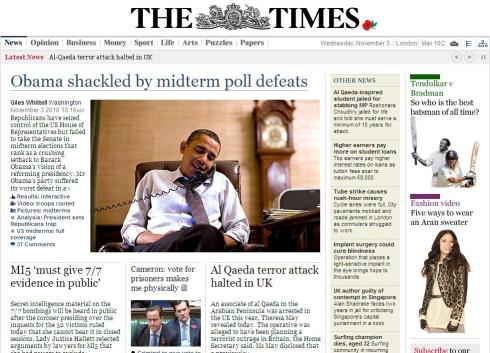John Rentoul charmingly criticised the work of his colleagues across the country with a list of the most over used sentences in journalism for journalisted this week.
Lobbywatcher’s comment on Jon Slattery’s blogpost that repeats the list sums up my sentiments exactly.
No doubt Mr Rentoul, who gets paid a six-figure sum for writing a couple of columns and a few leaders each week, can afford to take his time searching for freshly-minted phrases for his opinion pieces. Those of us who have to rattle off 1,000 words by next deadline on Vince Cable’s future prospects as well as covering the news story in print and online can surely be forgiven for resorting to the odd hackneyed cliché now and again.
I was in Brixton at 8am this morning after leaving the office past 8pm last night, covering what was supposed to be an all day event in 600 words that had to be filed by 11. From a café.On a laptop with iffy wifi and an uncooperative camera lead.
As always I tried my absolute hardest to keep it free of clichés or at least imbue the ones that local news at Christmas demands with a whisper of wit but I am sure I failed to some degree.
I didn’t have any of the top phrases in my copy – although it’s perfectly possible that I could have – but I did have the necessary hilariously dressed pet, a somewhat trite Christmas carol intro and maybe even a couple of hackneyed sentences.
But with a three hour deadline for copy including pictures, interviews and a potted history of the organisation I think I did quite a good job Mr Routoul, thank you very much.
Want to read my masterpiece? Buy the Ham&High. Someone has to pay me for my clichés, crappy puns and Christmas carol intros don’t they?
The list:
- Learning curve: 771 articles
- Way beyond: 746 articles
- A no-brainer: 651 articles
- Game changer: 524 articles
- Perfect storm: 520 articles
- Raising awareness: 405 articles
- Elephant in the room: 353 articles
- Not fit for purpose: 327 articles
- Out of the box: 229 articles
- What’s not to like?: 206 article


